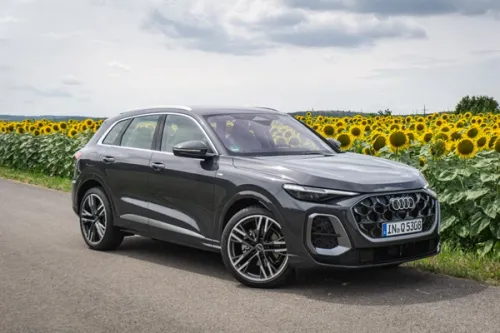Toyota Has Been CEVS-Ready Since 1997
Toyota has a long history of “Kaizen” - continuous improvement - when it comes to innovation and brand philosophy.


It was with these efforts that the world’s first mass-produced hybrid – the Prius – was introduced in 1997. First to market and now the most iconic and most driven hybrid in the world, the Prius brand has already been synonymous with world-leading fuel efficiency and ultra-low emissions (CO2 and other emissions), setting a benchmark for the automotive industry.
Based on our belief that environmentally-friendly vehicles can only have an impact if they are driven worldwide, Toyota has endeavored to promote the mass-market adoption of hybrid vehicles. Therefore, since the inception of the Prius in 1997, Toyota Motor Corporation (TMC) has gone on to produce 19 hybrid passenger car models and one plug-in hybrid vehicle model, all of which are found in about 80 countries worldwide. Global cumulative sales of TMC-produced hybrids to date have topped 4.6 million units. In Singapore, with a dominant market share, Borneo Motors is also the undisputed leader in hybrids, offering the widest range of hybrid models in various segments. Our latest addition to the Toyota hybrid range – the Prius C, has claimed No. 1 leadership in the hybrid segment, topping the charts with 33.6% market share since its launch in Feb 2012 and has grown the segment.
The Toyota Environmental Plan System was enacted in 1992, as a result of our vision of creating a sustainable mobility future for the world. The on-going environmental plan aims to enrich people’s lives through linking cars, homes and the community to achieve a balanced harmony. Now into the fifth phase of this plan from 2011-2015, key action items include improving the average fuel efficiency by 2015 in all regions by 25% as compared to 2005, and e.g. measures to further reduce the volume of purge solvents used in vehicle painting processes. For Toyota’s holistic efforts in making environmental sustainability a core management priority, we were awarded the No. 1 spot as “Best Global Green Brand” by Interbrand^ this year.
Toyota’s hybrids are perfect for city driving, as they offer class-leading fuel efficiency amidst stop-and-go conditions and low average speeds at peak hours. The world’s most fuel efficient car, the Prius C, is testament to this by achieving an outstanding fuel efficiency of 27km/l* – which makes great savings for drivers too. When driven in Electric Vehicle (EV) mode, hybrids are able to draw on the electric battery to emit zero emissions. Toyota has calculated that TMC-produced vehicles sold since 1997 have reduced carbon emissions by approximately 30 million tons worldwide. That is equivalent to over 63 million barrels of oil consumed!
In addition to achieving lower CO2 emissions which fulfills the objective of CEVS, Toyota hybrids go further by being lower in other harmful emissions, such as nitrogen oxides (NOx), particulate matter 10 and 2.5 that result in respiratory and cardiovascular ailments. With a reduction in these air pollutants, Toyota further brings about an Always Better Life for the longevity of the environment and personal health, while not worrying about regular replacement of particulate filters and other catalysts.
Credits:


Get the Best Price for your used car
from 500+ dealers in 24 hours

- Convenient and Hassle-Free
- Consumer Protection
Transparent Process
With No Obligation








